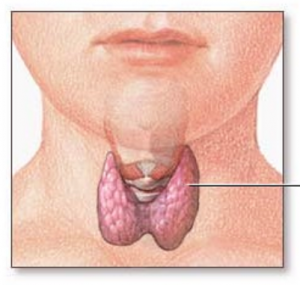Thyroid disorders.
Many clinicians treating autoimmune thyroid diseases are using selenium supplementation as one treatment modality even though, in the official guidelines, selenium supplementation is recommended only in the treatment of mild Graves orbitopathy [Winther 2020].

Some clinicians consider supplementation with selenium to be a pharmaceutical action that should be taken only with thyroid disorder patients with well-defined symptoms in order to alleviate the symptoms, to improve the course of the disease, or to provide a cure. Typically, in such cases, the selenium treatment is conducted for short periods, and the health benefits and side effects are evaluated and weighed [Schomburg 2020].
Other clinicians consider supplementation with selenium in a more holistic way and use selenium supplementation as a way to correct a nutritional deficiency of selenium, which is associated with thyroid disorders [Schomburg 2020].
Selenium and Thyroid Health
Of all the tissue in the body, the thyroid gland tissue has the highest selenium concentration per gram. Selenium is incorporated into selenoproteins, including the glutathione peroxidases, thioredoxin reductases, and iodothyronine deiodinases, which are important for antioxidant protection, for the reduction of DNA damage, and for optimal hormone metabolism. Selenium deficiency can cause a decline in selenoenzyme activity and can eventually lead to the impaired bio-synthesis of thyroid hormones [Fan 2014].
Prof. Lutz Schomburg (Charité Berlin) has summarized what we know about selenium status and thyroid disorders [Schomburg 2020]:
- Habitual low selenium intake increases the risk of thyroid disease risk, both hypothyroidism and hyperthyroidism.
- The thyroid gland is supplied with selenium in a prioritized manner, making it unlikely that selenium status and selenoprotein expression in thyroid gland cells are affected by small differences in dietary selenium intake.
- Even so, some patients with Hashimoto’s thyroiditis, Graves’ disease, or Graves’ orbitopathy have responded positively to treatment with selenium supplements.
- One plausible explanation is that, in times of selenium deficiency, the immune system, which does not have high priority for the distribution of selenium, is unable to express fully the selenoproteins needed for an adequate immune response to a challenge.
- That is to say: when selenium status is insufficient or deficient, and, especially when the organism is challenged by infection, iodine deficiency, pregnancy, shock, trauma, or other toxins, the interaction of thyroid cells and immune system cells (lymphocytes) is suboptimal.
Selenium and Autoimmune Thyroiditis
Köhrle has reviewed several studies that indicate that selenium administration in both Hashimoto’s thyroiditis and Graves’ disease improves the clinical scores and well-being of patients and reduces the number of thyroperoxidase antibodies. The success of selenium supplementation depends on a variety of factors: basal selenium status and the dose, duration, and form of selenium used for the intervention [Köhrle 2015].
Similarly, Wichman et al have conducted a systematic review and found that selenium supplementation significantly reduces thyroid autoantibody levels in patients with chronic autoimmune thyroiditis [Wichman 2016].
Fan’s review of nine studies enrolling 787 patients has shown that selenium supplementation is associated with a significant decrease in thyroid peroxidase autoantibody titers at 6 and 12 months and in thyroglobulin autoantibody titers at 12 months [Fan 2014].
Conclusion: Low Selenium Status and Risk of Thyroid Disorders
In a journal article entitled “Selenium in thyroid disorders – essential knowledge for clinicians,” Winther et al make the following points [Winther 2020]:
- Epidemiological data suggest an increased prevalence of thyroid disease with low selenium status.
- The optimal range of daily selenium intake is likely to be narrow. Both low and high selenium intakes correlate with disease risks. The optimal serum selenium status is estimated to be around 125 mcg/L [Winther 2020, figure 3].
- Selenium supplementation may confer beneficial thyroid health benefits by repletion of antioxidant or immune-modulating selenoproteins.
- In chronic autoimmune thyroiditis, selenium supplementation reduces circulating levels of thyroid autoantibodies.
- In Graves disease, selenium supplementation may facilitate biochemical restoration of normal thyroid function and may reduce ocular involvement.
Sources
Fan Y, Xu S, Zhang H, Cao W, Wang K, Chen G, Di H, Cao M, Liu C. Selenium supplementation for autoimmune thyroiditis: a systematic review and meta-analysis. Int J Endocrinol. 2014;2014:904573.
Köhrle J. Selenium and the thyroid. Curr Opin Endocrinol Diabetes Obes. 2015 Oct;22(5):392-401.
Schomburg L. The other view: the trace element selenium as a micronutrient in thyroid disease, diabetes, and beyond. Hormones (Athens). 2020 Mar;19(1):15-24.
Wichman J, Winther KH, Bonnema SJ, Hegedüs L. selenium supplementation significantly reduces thyroid autoantibody levels in patients with chronic autoimmune thyroiditis: a systematic review and meta-analysis. Thyroid. 2016 Dec;26(12):1681-1692.
Winther KH, Rayman MP, Bonnema SJ, Hegedüs L. Selenium in thyroid disorders – essential knowledge for clinicians. Nat Rev Endocrinol. 2020 Mar;16(3):165-176.
The information presented in this review article is not intended as medical advice and should not be used as such.
30 December 2022
